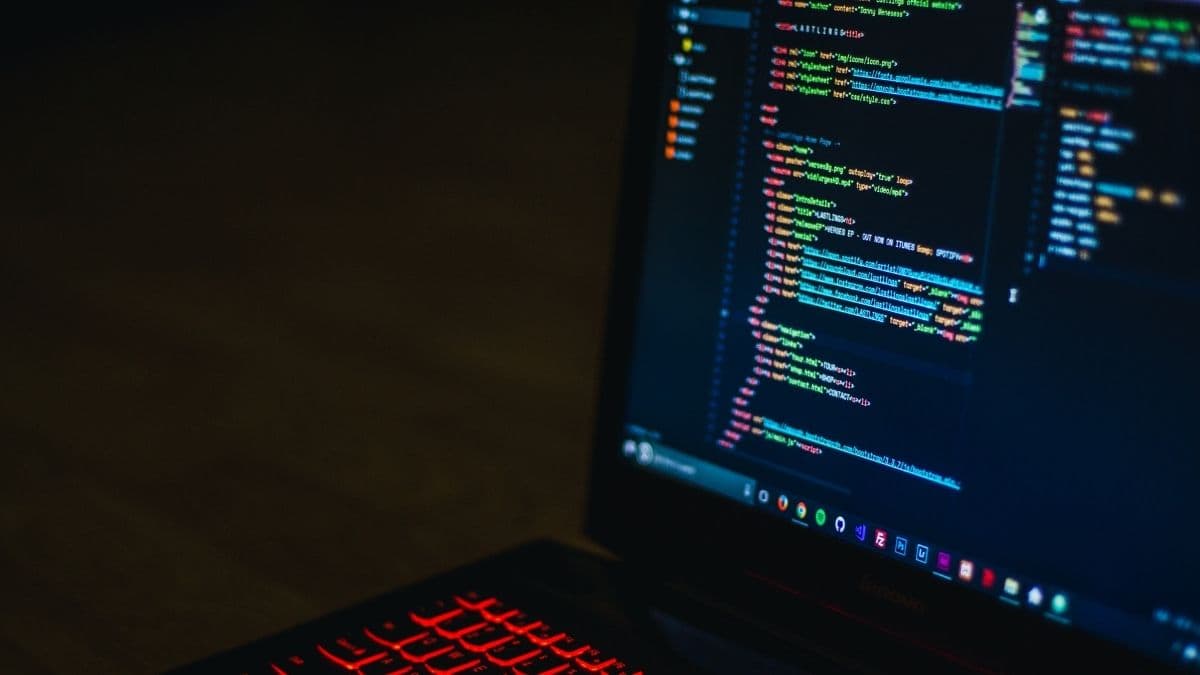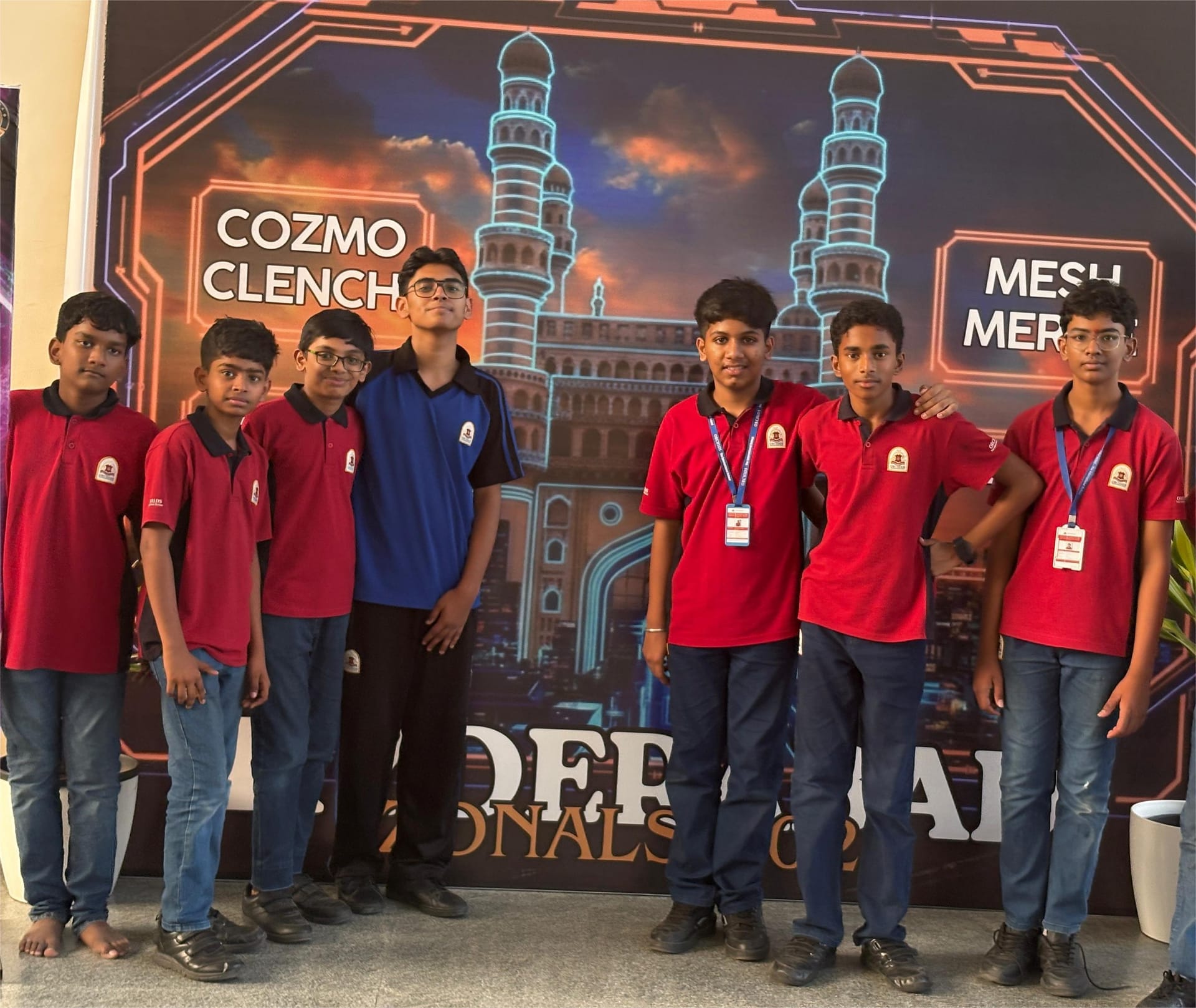Basic Concepts in Coding for Kids
By Harshitha |
Date 08-10-2024

Table of Contents
Admissions Open for
Coding can be defined as some magic with words that enables us to communicate with computers. In other words, it is just like telling stories or giving instructions using words, but in coding, we use certain instructions so as to tell the computers what to perform. The article discusses basic coding concepts that all young coders should be able to master. It also gives an outlook into coding algorithms and data structures in coding, which form the very foundation of programming.
What is a Concept in Code?
In general, a code concept is a simple idea or instruction of what to do with the computer. In other words, one would think of this like giving instructions to a robot, for example, "move forward" or "turn left." They are written out in a coding language, which is written to tell it what to do. Some common coding languages for kids are Scratch, Python, and JavaScript.
For instance, to get a game character to move, there would be a concept in code like "move 10 steps forward." In essence, this is an instruction that the computer can understand in order to make the character on screen move. The coding of simple ideas like these provides the basis for every program, whether it is a simple game or an advanced app.
Basic Concepts of Coding
Let's look at some basic coding concepts that are essential for any young coder:
Variables: The placeholder boxes that store information. Suppose you want to keep the score of a player in some game; you would make in your mind a variable for keeping his or her score. Each time he or she earns points, you update the variable.
Loops: Loops are what allow for something to occur multiple times. If a person wanted a character to continue to move forward until such time as it reaches a certain point, one would utilize a loop to cause that to take place. There are different types of loops, such as "for loops," which do something a specific number of times, and "while loops," which will continue to happen until something else occurs.
Condition: These are, so to say, decision-makers. Conditions check if something is true or not, sending the program to move on with the right action. Example: If the character stops at the end of the path, a condition would say, "If it is at the end, then stop moving."
Functions: Functions are, in a way, mini-programs inside your programs. This allows you to group instructions together that may then be reused any time you would like. Any time you think you are doing the same group of instructions again and again, go ahead and put them inside a function, then call the function wherever you might want to.
Events: These are the triggers to actions to happen within your program. Think of this like a player in a game clicked on a button; something may force an event to occur where the character jumps. They will enable your code to be able to communicate and respond to certain actions that will make your programs interactive.
These basic coding concepts will serve as building blocks for your coding projects. Once these are clear, you can start with the bigger programs-even with your own game.
Coding Algorithms
Generally speaking, an algorithm is a set of rules that helps us in solving a problem by breaking down big problems into small, executable steps. Say you want to sort a list of numbers from smallest to largest; you'd do so using a sorting algorithm. Here's a list of some common coding algorithms:
Sorting Algorithms: These are algorithms that arrange elements in a list in some well-defined order. Examples include Bubble Sort, Quick Sort, and Merge Sort. The sorting algorithms are just like arranging your toys from the smallest to the largest.
Search Algorithms: These help trace a particular item in a list. Suppose one is looking for a 'particular word' in a book; a search algorithm will enable one to do this in no time. Examples include Linear Search and Binary Search.
Pathfinding Algorithms: These find the best path from point A to point B. Imagine you are trying to find the shortest route from your house to the park. This is precisely what a pathfinding algorithm would do in order to find the optimal route for you.
Algorithms form an essential element of coding because they essentially help in solving problems efficiently. In other simple words, understanding and using coding algorithms lets you make your programs faster and effective.
Data Structures in Coding
Data structures are ways to store and organize information in your code. Just as you might sort your school supplies in a backpack, data structures help you keep your information organized so that it is easy to access and use.
Some common data structures in coding include :
Arrays: An array is a lot like a list, it contains many items. For instance, if you have a list of your favorite fruits, then you could store them in an array. Each item within that array has a given position called its index and you are able to use it to access the item.
Lists: Very similar to an array, except it can hold different types of items, like numbers and words, or even lists. Lists are dynamic and are often used to store data in groups.
Dictionaries: A dictionary works just like a real-life dictionary. Every word inside a dictionary has a definition. In programming, a dictionary holds pairs of items; one item-the so-called key-can be used to look up another item, called its value. You can think of it as using a dictionary to store country names and their capitals.
Stacks and Queues: These are structures much like queues of people outside some shops. In a stack, the last to come is the first to go; in a queue, the first one to arrive is the first one to go.
Understanding data structures in coding is crucial, it allows you to manage and organize your data efficiently. If you are building a game, application or a website, having the correct data structure can make your code easier to write, and understand, too.
Putting It All Together
Now that you know about code concepts, coding basic concepts, coding algorithms and data structures in coding, you are ready to start coding. Let's look at how all these pieces fit together.
Suppose that you are going to design a simple, easy game where there is a character to collect coins. You would initiate some very simple concepts of coding in order to move the character, and if it touches a coin, it would check for it. Maybe you would use a loop to keep moving the character until all coins are collected. If the character touches a coin, it would trigger some event to increment the score.
You could make this more interesting by using a coding algorithm that randomly placed the coins on the screen. You could then store the positions of the coins using a structure such as an array. As the character collects the coins you could update the array removing the collected coins.
All these concepts bind together to create an interesting game that is fun to be played by others. The more you practice, the better you get at coding, and very soon you'll be able to develop these much more complex projects too.
Why Learning to Code is Important
Learning to code is just like learning any other language, except instead of talking to people, you talk to computers. It helps one enhance problem-solving skills, creativity, and logical thinking. Additionally, it's a lot of fun. By learning to code, you could build games, apps, websites, and even robots.
Coding is the most important/good skill one can have in today's world. It is everywhere, and learning its basic concepts is preparing yourself for the future. Be it a game developer, scientist, engineer-whatever you can imagine yourself as in your life, coding supports your notions in developing these very ideas. So, now let's go ahead and start with coding.
Choose the Coding Language: Start either with Scratch or Python; these languages are quite friendly for kids. Scratch has been rated as best for beginners because it makes use of blocks of code that you can drag and drop for making programs. On the other hand, Python is suitable as well because it is quite easy to read and understand.
Practice, Practice, Practice: The best method to learn programming skills is to actually write code. Make a variety of projects, such as a simple game or even a website. There are many tutorials and resources online that will get you up and going in no time.
Don't Be Afraid to Make Mistakes: Coding is all about trial and error. Sometimes your code is not working the first time; don't give up! Debugging means the finding and fixing of errors, and it's a huge part of coding, and that's how you learn.
Join Online Communities: Plenty of online communities exist, which you can join, share your projects, ask for help from other coders, and learn. It is more fun to code when joined in a community.
Conclusion
Coding is an excellent skill; it can unlock a whole new world. The moment one understands concepts of code, basic concepts of coding, algorithms of coding, and data structures in coding, one is well on the way to becoming a pro at coding. Remember, coding is all about creativity and problem-solving, have fun and enjoy the exploration of new ideas.Be it for game development, app creation, or even website development, the coding skills taught today will be of immense help in the future. Power on your computer and start coding to see where your imaginations can take you!
FAQs
1. How long shall I invest in learning to program?
A good starting point is to dedicate 20-30 minutes daily. Consistency is what will make you good at coding; hence, you can increase this time as time allows you to get accustomed.
2.Can I learn coding without a computer?
Yes! There is much to learn about coding when one does not have access to a computer, problem-solving, algorithms, and finally, logic. You can involve yourself in some offline activities, use coding cards, or board games intended for use in learning how to code.
3. What is a coding community?
A coding community is a number of people learning to code, just like you. You can share your projects, ask questions, or get help from others within these communities. Online platforms like Scratch have active coding communities for kids.
If you enjoyed learning about the basic concepts in coding, share this article with your friends and family. Let's inspire more young coders to start their journey into the exciting world of programming.
CBSE Schools In Popular Cities
- CBSE Schools in Bangalore
- CBSE Schools in Mumbai
- CBSE Schools in Pune
- CBSE Schools in Hyderabad
- CBSE Schools in Chennai
- CBSE Schools in Gurgaon
- CBSE Schools in Kolkata
- CBSE Schools in Indore
- CBSE Schools in Sonipat
- CBSE Schools in Delhi
- CBSE Schools in Rohtak
- CBSE Schools in Bhopal
- CBSE Schools in Aurangabad
- CBSE Schools in Jabalpur
- CBSE Schools in Jaipur
- CBSE Schools in Jodhpur
- CBSE Schools in Nagpur
- CBSE Schools in Ahmednagar
- CBSE School In Tumkur

Call Us to know more about Orchids
Swipe Up


.jpg&w=1920&q=80)













